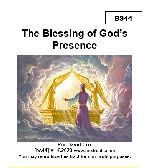Best Christ Could Not Be Tempted
by W.E.Best
Copyright © 1986
In this 19 chapter work, Best examines the issue of Christ and his possibility of sinning.
CONTENTS of Best Christ Could Not Be Tempted

An article helps pastors and Christian workers in building a Christian Reference Library to use in producing sermons and classes. I introduce the new Bible student to three free Bible programs, and offer some considerations:
(1) When you have no books on a subject.
(2) When you cannot find information of a Bible subject.
(3) When you cannot discern how much the author discusses the subject.
(4) You are searching for the wrong key word.
Note: on my site, twmodules.com, I offer 2500+ free books for Bible study, and another 500+ books on thewordmodules.com. Also, I offer on https://theword-modules.com/ Bibles for theWord, theword-dictionary-modules.com 140+ dictionaries, concordances, lexicons, etc. for theWord, and on https://www.theword-commentary-modules.com/ I offer some 500+ Bible commentaries for theWord. All of these are free for the downloading, so if you have an Internet connection and some time and space on your hard drive, you can assemble a Christian library of around 3800 works. All free.
See this page for more articles on improving your preaching.
Author’s Remarks
1. Introduction
2. Christ Was Never Tempted To Sin
3. The Doctrine That Christ Was Peccable Is Heresy
4. Christ Was Tested Apart From Sin
5. Teachers Of Peccability Proclaim Another Jesus
6. Jesus Christ Is The Unique Person
7. Christ Assumed A Human Nature
8. The God-Man Lacked Knowledge
9. Teachers Of Impeccability Are Not Guilty Of Docetism (Part I)
10. Teachers Of Impeccability Are Not Guilty Of Docetism (Part II)
11. Exegesis Of Scripture Proves Impeccability
12. Christ Affirmed His Impeccability
13. There Was No Sin In The Incarnate Christ
14. Christ Did Not Sin During The Days Of His Flesh
15. Christ Who Knew No Sin Was Made Sin
16. Opposite Imputations Are Inseparable
17. Sins Are Forgiven And Sin Is Condemned
18. Christ Was Both Priest And Sacrifice
19. Jesus Christ Is High Priest Forever
More Works on Person of Christ
- Coates-Raven-Stoney-Taylor – The Person of Christ
- Best Christ Could Not Be Tempted
- Bellett, J.G. – The Son of God
AUTHOR’S REMARKS on Best Christ Could Not Be Tempted
The title to this book may startle the reader. However, the evidence for Christ’s untemptability should be considered before one closes his mind. The author has never believed that Christ was peccable; but like many others, he has taught that the incarnate Son of God was tempted but due to His two holy natures He never yielded. The reason for the incorrect usage of the verb “tempted” was the incorrect translation of the Greek verb peiradzo when considering Christ. This verb can mean to test, try, or tempt. However, a study of the noun peirasmos and the verb peiradzo will prove there is no justification for translating these words as “temptation” or “to tempt” when they are used in reference to Jesus Christ.
The idea that Jesus Christ could be tempted is unfounded in the Biblical concept of Christ’s Person. Since Christ did not have a sin nature, solicitation to do something contrary to God’s will could not be entertained in His holy thought. Therefore, He could not be tempted. A study of James 1:2-15 proves that temptation has no power over a perfect Person, but it does over a depraved person.
Unless the reader is willing to consider the Biblical evidence for Christ’s untemptability presented in this book, he need not read any further than this paragraph. The Bible says, “He who gives an answer before he hears, It is folly and shame to him” (Prov. 18:13 NASB). False principles and false rules of interpretation lie at the foundation of false doctrine. Therefore, Biblical evidence and not human reason must be considered as the foundation of every Biblical question. Hence, everyone who gives his opinion before he hears or reads the Biblical evidence is foolish. The Christian desires to know the truth and abide by its teaching.
This book will demonstrate the author’s growth in grace and the knowledge of Jesus Christ (II Pet. 3:18). More than twenty years ago he wrote his first book entitled STUDIES IN THE PERSON AND WORK OF JESUS CHRIST. That book, which is in print, dealt with Christ’s impeccability; but this second work, dealing with Christology, is an improvement over the first. The Lord willing, if the writer adds a later work on the same subject, he hopes by God’s grace that it will be an improvement over the two preceding ones.
Best Christ Could Not Be Tempted

bs44 The Blessing of God’s Presence The Blessing of God’s Presence looks at how God's special presence brings great blessings to us, and how lost people in hell are lacking this. Topics: God is Omnipresent | The Presence of the Omnipresent God and the Actual Presence of God | Hell is to not sense any of the special presence of God | There are Great Blessing in the Presence of God | God is Love | Conclusion
See the Tract: bs44 The Blessing of God’s Presence
MySwordmodules is a website dedicate to the MySword Bible Program for Androird devices. We host MySword Modules.

I am Pastor David Cox, the Webmaster of this site. I am an independent Baptist Missionary pastor working in Mexico City since 1984. Many churches reject a fundamentalist because we do not accept the many false doctrines that modern churches have in common. We believe the Bible, and we preach and teach it. I have written over 400+ tracts and more than 60+ books which are just an extension of my pulpit ministry. All are free. Please help us keep this good material on the Internet for the world.
If you like what you see on this website, please help us with even a small donation. These sites cost me about $10 per month per site. Please donate something to help with this burden.
----->>>
Note: I am a local church missionary, and you can find my home church here (davidcoxmex.com) where you can write a check to our ministry and receive a tax-deductible receipt at the end of the year.
